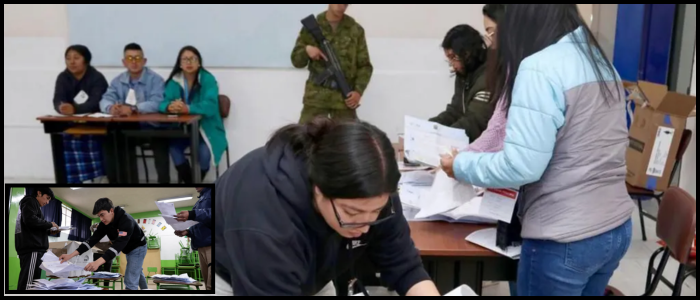Public Opinion Opposes Foreign Military Presence
This referendum result makes any change to the prohibition that has existed since 2008, when Ecuador decided to close a US military base on the Pacific coast, irrelevant. Noboa made the case for bringing back forces from abroad, noting that their presence would bolster measures against organized crime and ensure state responses to violent crime. Ecuador has increasingly become a strategic transit point for drug-trafficking organizations, especially given Ecuador's proximity to Peru and Colombia. Noboa has publicly stated that nearly 70% of the world's cocaine transits through Ecuador.
His administration has instituted a militarization of public safety and crime, including armed soldiers on the streets. Supporters say crime has decreased, especially given the movement of gangs. Critics argue that it encouraged authoritarian behaviour.
Major Implications for US Strategy in the Region and Domestic Change
The US would like to see the base reinstated that was removed from Ecuador around 16 years ago, assuming that the referendum would present the opportunity. Continued engagement during the past year has strengthened bonds of cooperation, including a recent visit from US Homeland Security Secretary Kristi Neoma to Ecuadorian military installations. In fact, Noboa has stated he wants foreign "armies" involved in the war with narco-traffickers' networks.
The question of allying with foreign forces, especially US forces, and the use of military alliances associated with drug trafficking was rejected by the public as part of the referendum that proposed the end to public funding to political parties, limiting the size of Congress, and a constitutional assembly to write a new constitution for Ecuador. Noboa said these discussions were vital to strengthening border security and increasing punishment for crime. Supporters of change warned that their proposals would lead to limitations on political representation and curb governmental punishments of the Ecuadorian government. Noboa accepted the referendum results, and he said he would comply with the will of the people.
Key Gang Leader Arrested Amid Regional Rattling
On the same day of the vote, authorities arrested Wilmer "Pipo" Chavarria, the leader of the drug-trafficking organization Los Lobos, via an operation with the Spanish police. Noboa stated that Chavarria faked his death and has been running drug trafficking, murders, and legal mining operations from Europe. Both countries classify Los Lobos as a terrorist organization.
Simultaneously, the referendum came on the heels of strenuous military buildup by the United States in the Caribbean that involved the world's largest warship and bomber aircraft. The United States has carried out over 21 strikes related to these vessels claiming that those vessels were drug traffickers in the Eastern Pacific, resulting in at least 83 deaths. Lawyers are concerned about whether these strikes and deaths comply with international laws and laws of warfare since the US has not made reports public regarding the deaths of the alleged criminals.
The speculation continues about potential US targets in Venezuela's land. Washington also continues to accuse President Nicolás Maduro of leading a drug-trafficking organisation, which the Maduro administration denies. Many in the US believe the military buildup serves a dual purpose to increase pressure on Maduro.
World

Ecuador Rejects Foreign Military Bases Proposal

Ecuadorians rejected a constitutional amendment that would have allowed the return of foreign military bases to the country. This represents a major setback for President Daniel Noboa and a major hurdle in the US effort to extend its geostrategic presence in the Eastern Pacific.















